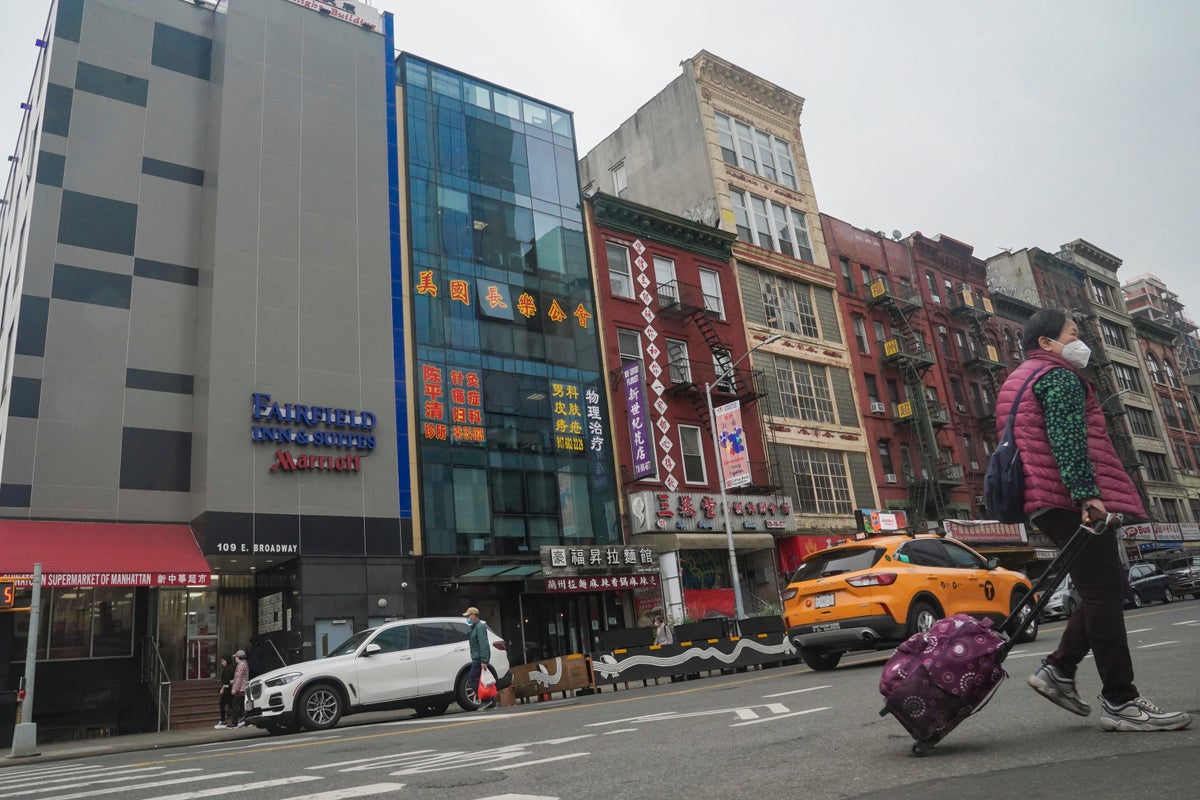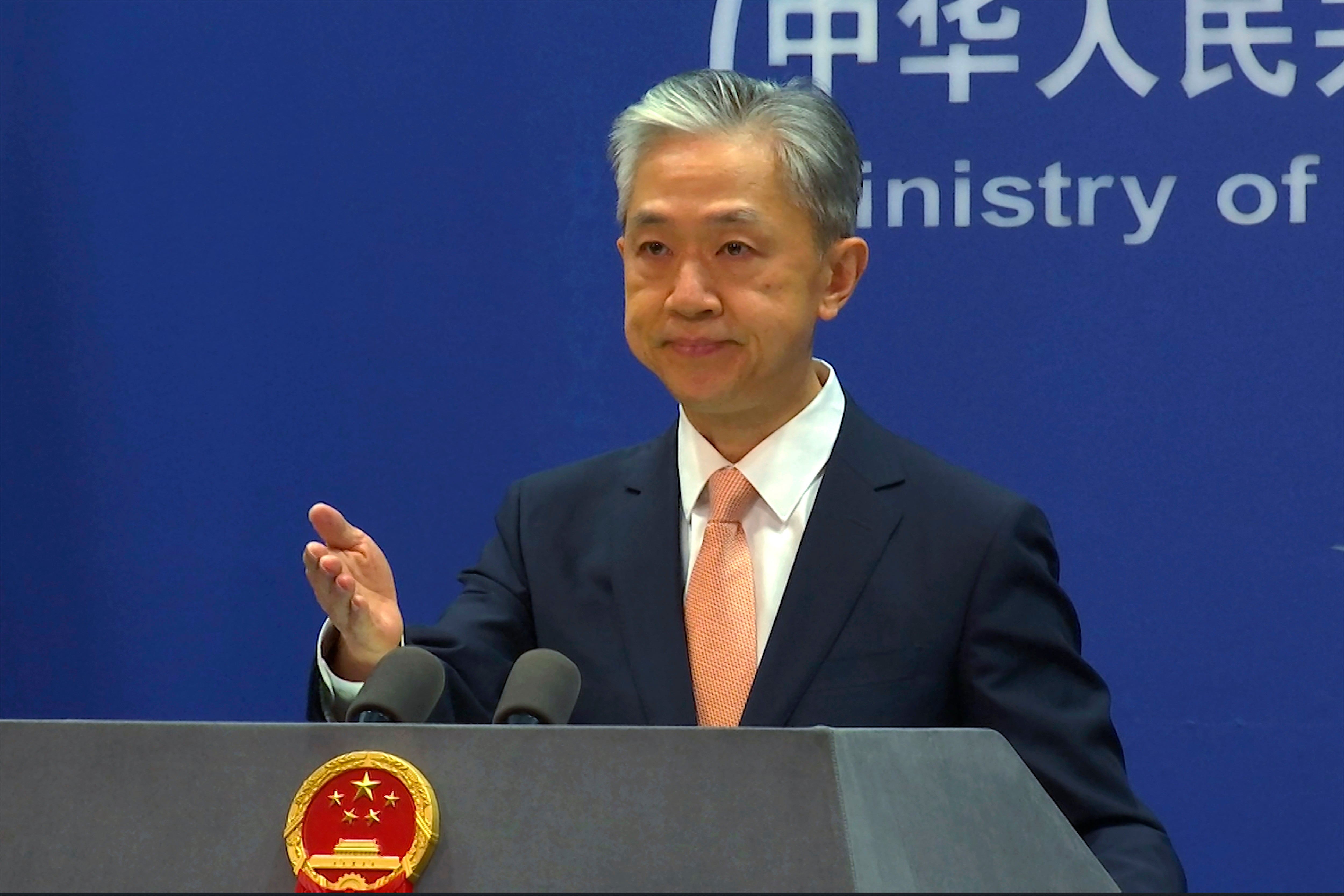
A move by the FBI to arrest two men in New York over accusations that they ran a clandestine “police station” to carry out operations on behalf of the Chinese government has drawn attention to the country’s alleged harassment of overseas-based dissidents.
Following a raid on a Fujianese community centre in Chinatown in October, federal operatives moved to arrest American citizens “Harry” Lu Jianwang, 61, from the Bronx and Chen Jinping, 59, from Manhattan this week, accusing them of being “agents of the PRC [People’s Republic of China] government” and “obstructing justice by destroying evidence of their communications” with a Ministry of Public Security [MPS] official.
The Bureau alleged: “The defendants worked together to establish the first overseas police station in the United States on behalf of the Fuzhou branch of the MPS. The police station – which closed in the fall of 2022 after those operating it became aware of the FBI’s investigation – occupied a floor in an office building in Manhattan’s Chinatown.”
Matthew Olsen, assistant attorney general of the Justice Department’s National Security Division, said: “The PRC, through its repressive security apparatus, established a secret physical presence in New York City to monitor and intimidate dissidents and those critical of its government.
“The PRC’s actions go far beyond the bounds of acceptable nation-state conduct. We will resolutely defend the freedoms of all those living in our country from the threat of authoritarian repression.”
Breon Peace, US attorney for the Eastern District of New York, called the affair a “flagrant violation of our nation’s sovereignty”, adding: “Such a police station has no place here in New York City – or any American community.”
Kurt Ronnow of the FBI Counterintelligence Division said China’s conduct was “simply outrageous” and added: “This case serves as a powerful reminder that the People’s Republic of China will stop at nothing to bend people to their will and silence messages they don’t want anyone to hear.”
Responding to the arrests, White House press secretary Karine Jean-Pierre stated: “We will not tolerate the PRC government or any foreign government harassing or threatening US persons.”
But for its part, China’s foreign ministry has insisted there is simply “no such thing as an overseas police station”.
“China firmly opposes the US side’s slandering, smearing, engaging in political manipulation and maliciously concocting the so-called transnational repression narrative,” spokesman Wang Wenbin told reporters on Tuesday.
“We urge the US to immediately reflect on itself, abandon Cold War thinking and ideological biases, immediately stop related erroneous practices, stop political manipulation and stop smear attacks against China.”
That denial does not tally with the findings of Madrid-based pro-democracy group Safeguard Defenders, which published a report last September entitled 110 Overseas in which it alleged that China now routinely sets up such outposts on foreign soil, ostensibly to help Chinese migrants with routine bureaucratic tasks like applying for driving licences.
However, behind the scenes – the group contends – these offices actually spy on dissidents and pro-democracy activists, attempt to intimidate them into staying silent on criticisms of Beijing or “persuade” them into returning home.
“The overseas service stations are primarily set up to conduct a series of seemingly administrative tasks to aid overseas Chinese in their community of residence abroad, but they also serve a far more sinister and wholly illegal purpose,” Safeguard Defenders explains.

“While the evidence available so far suggests most transnational policing operations are carried out through the online tools of the domestically operated ‘overseas station’, some official anecdotes of official operations explicitly cite the active involvement of the hometown associations on the ground in tracking and pursuing targets indicated by the local public security bureau or procuratorate in China.”
In a December update entitled Patrol and Persuade, the group reported that it now estimates there are as many as 102 Chinese overseas police stations in 53 countries.
The practice was reportedly first trialled in 2016, orchestrated by regional public security bureaus based in southeastern cities like Nantong, Wenzhou, Qingtian and Fuzhou, rather than China’s central government, and has since spread across the globe.
The FBI’s attempt to crackdown on the alleged overseas police station in New York comes after Canadian prime minister Justin Trudeau raised his concerns with Chinese premier Xi Jinping at the G20 summit in Bali, Indonesia, in November and with similar investigations underway in at least 12 countries, including the UK, Canada, the Netherlands and Germany.
In the House of Commons on Wednesday, shadow home secretary Yvette Cooper called on Conservative minister Chris Philp to explain why the UK had not yet moved to shut down four sites of concern linked to China in London, Glasgow and Belfast after an investigation into the matter was announced in November.
“We have heard nothing. No reports of arrests, no reassurance that these operations have been closed down,” she said. “The lack of answers will raise grave concerns that the government is not addressing the scale of this threat and is not updating Parliament for fear of party-political embarrassment.”
Mr Philp confirmed law enforcement agencies are investigating the allegations and described the latest reports about the sites as being “of great concern”. He added the UK government is “aware of approximately 100 alleged stations” around the world.
Taiwo Owatemi, a Labour MP for Coventry, also demanded answers, saying the issue posed “a direct threat” to her constituents and for national security.
It comes after The Times reported Chinese businessman Ruiyou Lin, 40, is linked to a “secret police station” in Croydon and has organised Conservative Party fundraising dinners and been photographed alongside prime ministers.
In November 2022, Mr Lin issued a series of denials – including rejecting the idea that he worked for China – and said he believed the motivation behind the police station allegation could be to “attack me personally or my business”.
He said his work has involved volunteering to help Chinese expats update their driving licences.
A spokesman for the Cities Of London & Westminster Conservative Association (CLWCA) said in a statement: “Given the nature of these allegations, last year we immediately reported the matter to the security services. Mr Lin is no longer a member of CLWCA.”
On the threat posed by the police stations to Chinese communities overseas and the sovereignty of nation states, Laura Harth, campaign director for Safeguard Defenders, told The Independent: “The ‘overseas police service stations’ phenomenon is but the tip of the iceberg in the Chinese Communist Party’s [CCP] massive and global transnational repression campaign.
“Ever since assuming power, CCP chairman Xi Jinping has put great emphasis on the importance of the ‘Chinese overseas communities’ in the ‘great rejuvenation’ of the nation. This emphasis is not just nationalist rhetoric, but has coincided with a renewed push on United Front work around the world.
“The United Front Work Department [UFWD] is the CCP’s prime influence agency: it seeks to influence various public and private sector entities outside the PRC, including but not limited to political, commercial and academic spheres. To that end, on the one hand the UFWD promotes efforts that align policies and activities with CCP interests, and on the other seeks to divide and silence CCP/PRC critics.
“It is evident these operations and networks represent a real and present danger to diaspora/exiled communities and CCP/PRC critics in general, as well as a threat to the integrity of our democratic institutions and a brazen violation of territorial sovereignty. Starting from the ‘overseas police service stations’, it is a broad issue of hybrid warfare liberal democracies need to start addressing in a coordinated fashion sooner rather than later. ”







